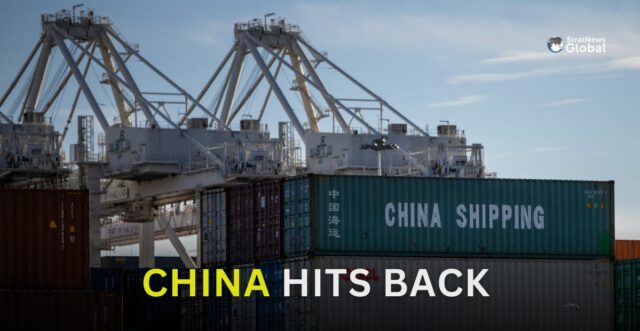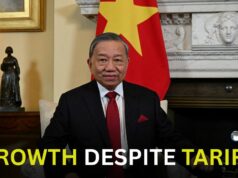The US China relationship, even in its heyday, always had layers to it. To discerning observers, the bonhomie on top sweetened by the steady flow of foreign direct investment and technology transfers, could blur but not entirely conceal how the Chinese establishment viewed Uncle Sam: as the adversary they would have to take on some time in the future.
It seems that day has come going by the tariffs slapped on each other. And Chinese netizens, suitably encouraged by the state, have taken to social media platforms to express their views.
At one level, it has taken the from of TikTok videos documenting how top Western fashion labels make in China and taking advantage of low labour cost and efficient supply chains, sell those products at a huge markup. Birkin handbags for instance, cost $1,400 to make in China and sell for $38,000 in the US.
Other videos show Trump and Elon Musk working on an assembly line along with MAGA supporters. Some videos mock the American worker, showing him as obese and slow compared to his Chinese counterpart.
Comments bordered on the offensive: one made fun of Trump, describing him as a poor white crazy guy, others advised Chinese negotiators “not to talk to fools”, saying Trump should be ignored. Others urged Trump to add another 5% to the tariff, thereby taking the figure to 250%’.
With hashtags like #ChinaFirmlyOpposesUSTariffs gaining millions of views on Weibo, netizens support the retaliatory measures believing it an opportunity for China to assert itself internationally. Some netizens interpret the tariffs as a sign of America’s fear of China’s rising global influence.
Chinese exporters are seeking to offload unsellable stock meant for the American market by appealing to domestic consumers on the social media platform Rednote. Livestreams from sellers such as “Dingding Cloud Foreign Trade Warehouse” and “Muzi Has Good Goods” showcase discounted products like rice cookers and toasters, that can no longer be sent to US.
Major platforms including JD.com and Alibaba-owned supermarket chain Freshippo are supporting this, with the former announcing a $27.35 billion fund to facilitate domestic sales. Hashtags like “resist” and “China can make it” reflect growing public support for homegrown goods.





